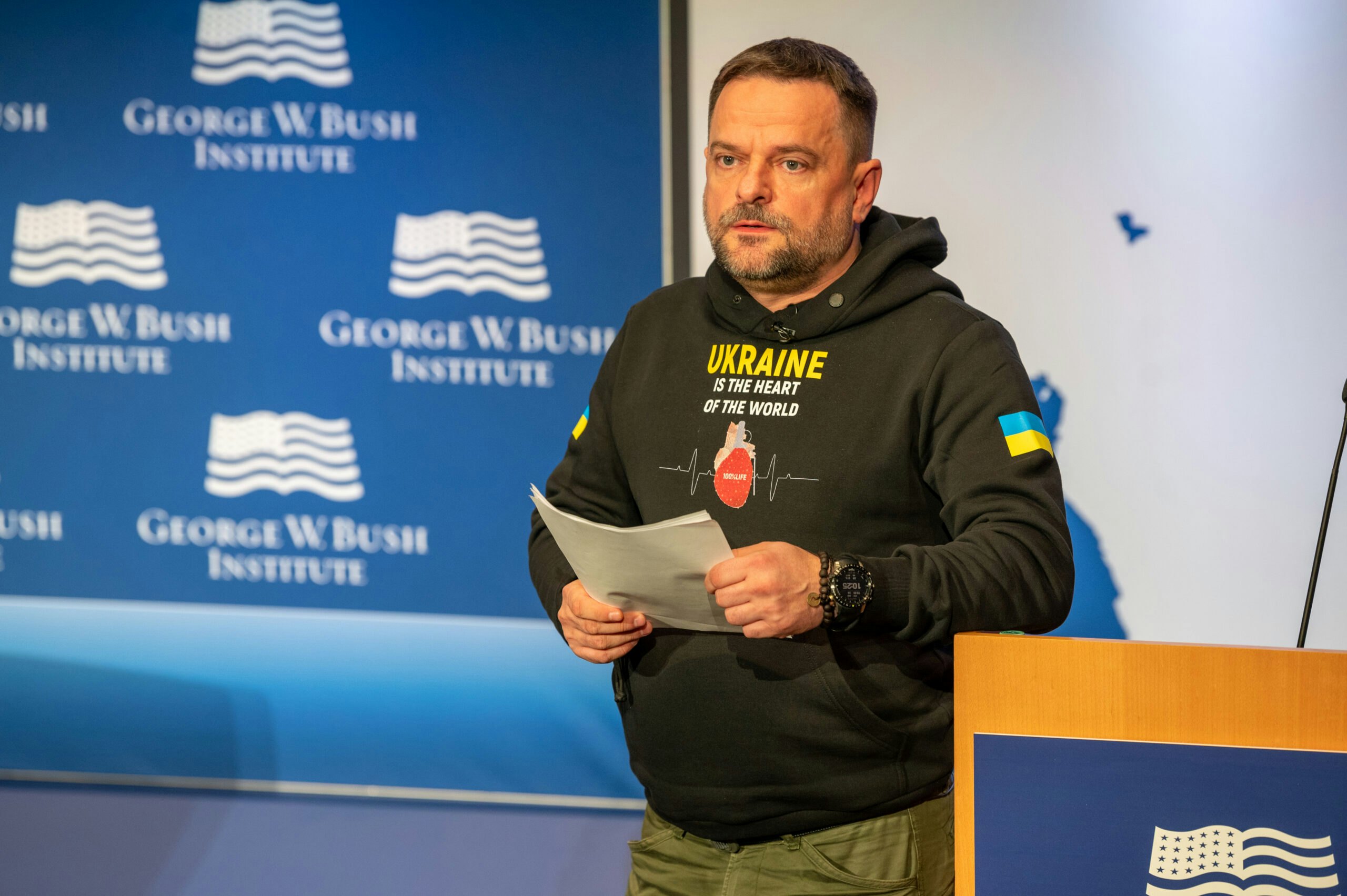Tumaini Kaaya, whose name means “hope” in Swahili, is an HIV and cervical cancer ambassador in her community in Tanzania. She shares her story of survival and courage.
Approximately 1.7 million people are living with HIV in Tanzania according to UNAIDS. The country also has the highest incidence rate of cervical cancer in East Africa with 62.5 incidents per 100,000 clients and a mortality rate of 42.7 per 100,000 clients, reported by GLOBOCAN. Women living with HIV are six times more likely to develop cervical cancer, which is why the Go Further partnership between PEPFAR, The Bush Institute, UNAIDS, and Merck, works to ensure all women living with HIV between age 25 to 49 are screened.
Tumaini Kaaya, a resident of Meru District in Tanzania and a mother of two children, is a beneficiary of the PEPFAR/ USAID funded Boresha Afya (Swahili for “Improve Health”) cervical cancer efforts as part of the Go Further partnership. Boresha Afya delivers health services that emphasize coordination and collaboration between the Government of Tanzania, health facilities and communities, towards achieving HIV epidemic control while integrating family planning, tuberculosis, maternal and child health, malaria care, and nutrition through innovative integration approaches at all levels and opportunities.
Tumaini, whose name means “hope” in Swahili, is an HIV and cervical cancer ambassador, devoting her efforts to spreading awareness to other community members who are afraid to go and get tested. I sat down with Tumaini to hear her story.
This interview was translated and edited for length and clarity.
Nuru Ngailo (NN): Tell me about your life and what’s important to you?
Tumaini Kaaya (TK): I am a mother of two most beautiful children and a wife to an amazing husband. My work as a Community Health Worker (CHW) is most important to me as I feel that I am giving back to my community after having been a beneficiary of the cervical cancer program myself.
NN: Tell me about your journey with cervical cancer.
TK: After being informed about cervical cancer screenings, I made an appointment with the nurse at Meru District Hospital to get screening for cervical cancer. Although I did not have any signs, I just thought it would be good to check my health as I came to learn that people with HIV like myself have a greater chance of contracting the disease. Skilled healthcare workers attended to me really well at the facility. After being screened, the nurse approached me and informed me that I had a large lesion, and that she would have to refer me to Kilimanjaro Christian Medical Centre (KCMC), a hospital that performs loop electrosurgical excision procedures (LEEP). I was shocked! The nurse calmed me down and explained to me that having such a lesion does not mean I have cancer, but it is an indication that I might get it in future. Since I had taken the initiative to screen for cervical cancer early, the nurse explained that I could beat the disease. This calmed me, and I agreed to go to KCMC.
When I got home, I told my family about my results and they comforted me and gave me full support. Other relatives were afraid for my sake and thought this was the end of my life. The next day I went to KCMC for LEEP, a procedure to remove abnormal tissue from the cervix. A month later the results came and to my surprise I was found to be cervical cancer-free.
Ever since, I have been educating women in my community (including those living with HIV) on cervical cancer. My role as a CHW makes it even easier for me to reach out to the communities through the household visits that I conduct from time to time.
NN: What was your experience at the clinic?
TK: My experience at this facility is magnificent. Being HIV positive, a CHW and a beneficiary of the services that the facility provides, this hospital holds a special place in my heart. The healthcare workers are very skilled. They are committed, and this makes the facility patient-friendly.
NN: Who were the people who supported you along the way?
TK: I was mostly supported by the doctors and nurses at this health facility, and not to forget my family as well. I owe these people my life.
NN: What are your dreams in life?
TK: My dream is centered around creating more awareness to my community so that they get screened for cervical cancer early.
NN: What messages do you have about cervical cancer and cervical cancer screening?
TK: My message to all women is that they should make it a priority to get screened for cervical cancer, because initially it doesn’t show any signs. When it’s detected early, it can be treated, but when it has progressed and is detected late it becomes more difficult and expensive to treat.



























